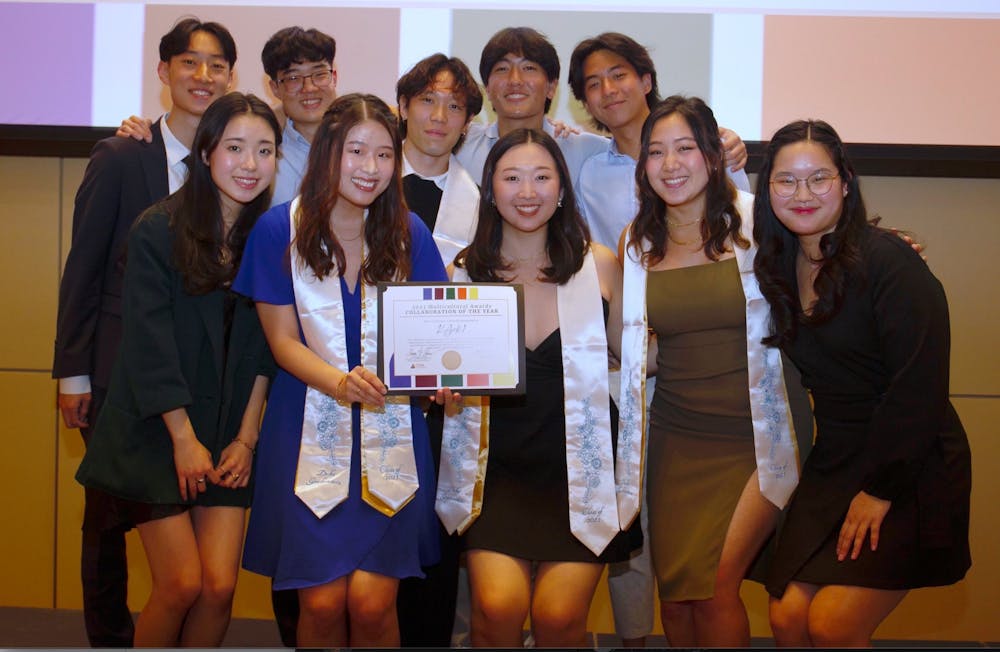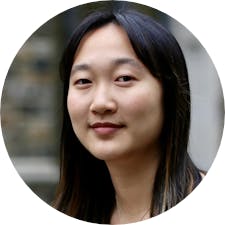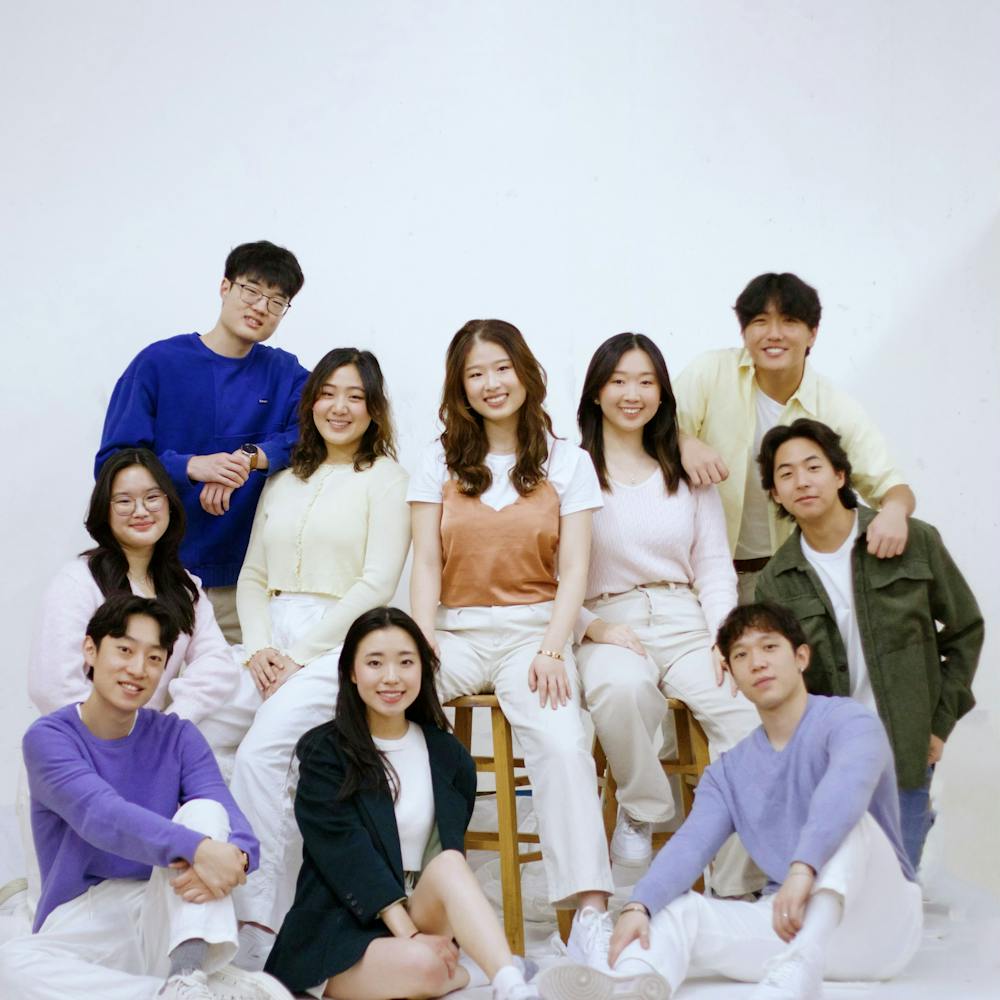Throughout their first few years at Duke, all students want is to find a community where they feel they belong. For some, that community was one for Korean Americans.
But these students realized no such group existed when they first came to Duke in 2019. Fast-forward three years, a few lunchtime conversations and countless hours of organizing later, and KAjok — a “home-base” for Korean American and Korean-diaspora members at Duke — was founded in September 2022.
“[KAjok] really stemmed from our personal experiences,” said Sebin Jeon, Trinity ‘23, co-founder and former co-president of KAjok. “There [were] so many Korean Americans scattered across Duke’s campus … but [we didn’t have] the opportunity to actually engage with them about our Korean American identity.”
According to the group’s Instagram, KAjok strives to be an inclusive environment for all individuals interested in sharing and celebrating Korean heritage and culture. The name KAjok is a play on the Korean word "gajok," or "family."
In KAjok’s inaugural year, it hosted a variety of social events, including its Tteokbokki Social and Hallyuween Kickback, provided informative resources on Korean American novels and articles, curated innovative and aesthetically pleasing Instagram posts and grew its executive board to a team of 10. This year, the group also received the Collaboration of the Year Award at the Center for Multicultural Affairs’ Multicultural Graduation.

Angela Chung, Trinity ‘23, co-founder and former co-president of KAjok, said that the group catered this year’s events towards building and expanding Duke’s Korean American community.
“Food events were a big part of it,” Chung said. “And then we also would do things where people could just come together and relax or do other activities.”
While events with Korean food were well-attended, KAjok also hosted other events such as its recurring KAfé series, with one where upperclassmen and alumni served as mentors for underclassmen on tackling coursework, navigating their careers or adjusting to life at Duke.
KAjok also collaborated with the University of North Carolina at Chapel Hill’s Korean-American Student Association to host a joint Korean barbecue mixer. The group’s most well-attended event was the KArdens Wellness Gardens Picnic event, with over 100 students in attendance.
Chung acknowledged that there are overlaps between KAjok and Duke’s Korean Undergraduate Student Association, emphasizing that many students attend both organizations’ events and have spaces in both communities.
Looking toward the future, Alice Chun, Trinity ‘23, co-founder and former co-president of KAjok, said that the group hopes to grow its on-campus presence through academic collaborations with the Asian American Diaspora Studies department, host movie screening events with Freewater Productions and continue working with UNC Chapel Hill’s KASA.
“[We are working on] expanding our community, aligning ourselves with other marginalized communities on campus [and] other Asian American and Asian American interest organizations,” she said.
KAjok’s primary advisor is Esther Kim Lee, AADS director and professor of theater studies, international comparative studies and history. KAjok’s co-founders specifically reached out to her for this role, knowing that Lee was “very receptive and understanding of the specific Asian American identities on this campus and being connected to those students and resources,” Chun said.
“I immediately said yes,” Lee wrote in an email to The Chronicle. “Korean American students have unique interests, and I knew enough of them to know that a new organization would be tremendously helpful to their growth at Duke.”
KAjok is also advised by CMA Assistant Director Maij Vu Mai. According to Jeon, Mai encouraged KAjok to create community agreements, a living document that details the mission, values and expectations of KAjok programming and its members. Some of these values include “leaning into community care” and “centering the diversity of Korean American and Korean Diasporic experiences.”
KAjok’s efforts were recognized this year at CMA’s Multicultural Graduation, where it was awarded the Collaboration of the Year Award. The award “recognizes groups of students who contributed in a significant way to the quality, enjoyment, and understanding of multicultural communities at Duke,” according to KAjok’s Instagram.
Duke community members nominated KAjok for the award, according to Jeon.
Chung said that receiving the award was a testament to the demand for KAjok’s presence on campus.
“We had some self-doubts in the beginning stages of creating this community,” she said. “But I think the fact that we got the award … was a signal that this community is something that people wanted or needed.”
Jeon echoed Chung’s sentiments. She is proud of the effort she and her co-founders put in to get to know other KAjok community members.
“We can say hi to people on campus, greet them, hug them and just feel happy to see them. [I’m proud of] the ways KAjok has made [the] Korean American community visible on campus,” she said.
Although four of the five founding members of KAjok have graduated, Chun is excited for incoming first-years who will have KAjok as a community to lean on for the next four years. She also hopes KAjok expands beyond an ethnically Korean and Korean American population to reach a “bigger, broader community.”
“We hope that this community can be fostered and grown for years and years to come,” Chun said.
Get The Chronicle straight to your inbox
Signup for our weekly newsletter. Cancel at any time.

Katie Tan is a Trinity senior and digital strategy director of The Chronicle's 119th volume. She was previously managing editor for Volume 118.

